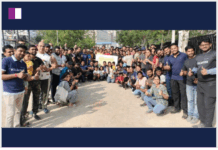Omoyeni TEMITOPE recently shared a thought-provoking post on LinkedIn, shedding light on a critical issue many businesses face over-expansion without strategic planning. Her insights came from a real-life scenario where a company had to shut down six branches and lay off over 130 employees due to overstaffing and inefficiency. This situation, as Omoyeni TEMITOPE highlighted, is not just about job losses but a fundamental lesson in business growth and sustainability.
Omoyeni TEMITOPE’s analysis of this event provides valuable lessons for business owners, entrepreneurs, and professionals navigating today’s competitive market. She rightly pointed out that success is not determined by the number of employees a company has but by how effectively each team member contributes to the business. The mistake of over-hiring can be costly, as seen in this case, leading to unnecessary expenses that ultimately threaten the company’s survival.
The story Omoyeni TEMITOPE shared is a testament to the importance of strategic hiring. In the company’s case, multiple roles were redundant. The accounting department, for example, had three people doing what one competent individual could manage. Similarly, sales representatives and customer support staff had overlapping responsibilities, making some positions unnecessary. By identifying these inefficiencies early, the company was able to take corrective action before facing complete financial collapse.
Omoyeni TEMITOPE emphasized the importance of making tough but necessary business decisions. While laying off employees is never an easy choice, it was a better alternative to bankruptcy. The company still operates over 40 locations, and by cutting down on inefficiencies, they are now in a stronger position to sustain their business in the long run. This kind of strategic thinking is essential for any business aiming to survive economic challenges and stay competitive.
Another key takeaway from Omoyeni TEMITOPE’s insights is the need for businesses to scale smartly. Expansion should be a deliberate process, driven by actual demand and operational efficiency. Simply hiring more people does not equate to growth. In fact, it can lead to resource depletion and eventual downfall if not managed properly. Businesses must assess their hiring needs carefully and ensure that every role contributes meaningfully to the company’s objectives.
Omoyeni TEMITOPE’s perspective also brings attention to the broader economic implications of job losses. Nigeria already faces a high unemployment rate, with over 700,000 graduates entering the job market each year, yet a significant percentage remain unemployed. If businesses continue to expand recklessly and later collapse, it exacerbates this problem. The solution, as Omoyeni TEMITOPE suggests, lies in strategic workforce management and sustainable business practices.
Her message serves as a crucial reminder that growth should be purposeful. Companies must evaluate their staffing needs continuously and avoid the temptation of hiring beyond what is necessary. Omoyeni TEMITOPE highlights that business leaders should focus on maximizing the potential of their existing workforce before considering expansion. This approach ensures efficiency, minimizes financial strain, and fosters long-term stability.
The insights shared by Omoyeni TEMITOPE resonate with entrepreneurs and business professionals worldwide. Many companies, both large and small, have faced similar challenges. Some have successfully navigated these difficulties by implementing lean operational strategies, while others have succumbed to financial burdens due to poor decision-making. Learning from such real-life examples is essential in building resilient businesses that can withstand economic fluctuations.
Omoyeni TEMITOPE’s perspective underscores the need for adaptability in today’s business environment. Companies must be willing to reassess their strategies and make necessary adjustments. Business leaders should not fear restructuring if it means safeguarding the organization’s future. As demonstrated in this case, difficult decisions made today can prevent greater losses in the future.
Another significant aspect of Omoyeni TEMITOPE’s discussion is the role of leadership in ensuring business sustainability. Leaders must be proactive in identifying inefficiencies and willing to take decisive action. A strong leadership approach includes continuous evaluation of business operations, data-driven decision-making, and maintaining a workforce that aligns with the company’s actual needs.
Omoyeni TEMITOPE’s analysis encourages businesses to focus on quality over quantity. Instead of measuring success by the number of employees on the payroll, companies should prioritize productivity, efficiency, and strategic hiring. This mindset is crucial for businesses aiming to stay competitive in an ever-evolving market.
In conclusion, Omoyeni TEMITOPE’s insights serve as a powerful lesson for businesses at all levels. Growth, while essential, must be well-planned and executed with precision. Over-hiring can lead to financial instability, while strategic workforce management ensures sustainability. By sharing this real-world example, Omoyeni TEMITOPE has provided a valuable lesson in business efficiency, leadership, and the importance of making informed decisions. Entrepreneurs and business leaders should take heed and apply these principles to build stronger, more resilient organizations.





































